On Liveability
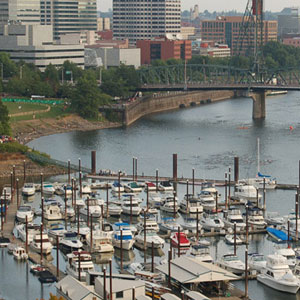
I keep chickens in the backyard. In the middle of the city of Portland, Dixie (a domineering Red Sexlink), Mathilda (a gossiping Barred Rock), and Loretta (a curious Silver Laced Wyandotte) scratch for bugs and watch for cats. They are my pets, at once loveable and mischievous. Unbeknownst to them, they are also part of a slowly turning wheel.
The wheel has its apex in autumn, when I clear the garden beds in the front and back yards and seed them with crimson clover. Through the winter months the clover grows, lending a soft green to the drab of February's grey, while the chickens poop in the compost heap. Leafy scraps from the dinner table also find their way to the compost, providing a meal for worms and chickens alike.
In early spring, I place bamboo-staked scrim (it helps to be a race director) around the fluffy beds of clover and drop the girls within. They scratch and dig and gobble up the tender greens, unknowingly tilling and fertilizing the soil while searching for worms. After a few hours, their work done, they return to the coop full and happy. Old straw from the coop is piled on the newly-sown beds, a delicious mixture for hungry spring seeds.
Worms and grubs in the chicken belly convert to a steady supply of fresh eggs, one per day per hen. The shells are a delicate brown and the yolks stand up in the frying pan, firm and bright orange and embarrassing for their store-bought cousins. Every once in a while the ladies produce a surprise double yolk; they are rewarded with sunflower seeds.
The wheel of the seasons turns on its pivot, dirt made by worms eaten by chickens laying eggs enjoyed by humans; poop fertilizing soil cradling kale eaten by chickens. Loretta, Mathilda, and Dixie go about their day oblivious to the life created, and maintained, by their tasks. They are part of nature's rotation.
We use the word "sustainable" to describe systems like those revolving around my chickens – systems that have been functioning for millennia, seemingly without beginning and without a foreseeable end. We don't know whether the chicken or the egg came first because the system works so well – it is at once perpetual and complete. When man tries to fashion sustainable systems, he inevitably gets it wrong – all too often the things we create that will last forever are those things which shouldn't have existed in the first place.
I don't like using the word "sustainable" to describe those things which are not. The term is misused and overused, though nobody seems to know what it really means. It describes a world too distant. It puts too much faith in the bulk of humanity moving toward a vague set of goals many years, decades, centuries in the future.
I'm too impatient for that. I prefer quality of life now, and I don't want it measured in possessions. I want it doled out in happiness, in contentment, spread throughout a society, so that our very worst off are better off tomorrow. I believe in doing things within my own life that will cause others to care about things in their lives. I call this liveability.
In last month's issue of Triathlete magazine, the Freshwater Trust Portland Triathlon was dubbed the "Greenest Race in the World." While I am flattered and grateful, proud of what a small group of deliberate and passionate individuals has been able to accomplish, I make no pretense that this event is truly sustainable. We consume resources without putting them back. We deposit items in the landfill which weren't there before, which will be there years and years past the final edition of the triathlon.
Most media descriptions of the "green" elements of the Portland Triathlon focus on the easily-understood and encapsulated – the sound bites. We hand out swim caps made of recycled silicone. The bike racks are bamboo and surplus steel. Traveling athletes have the opportunity to offset their greenhouse gas emissions during registration. These things might be better than what existed before, but in no way are they zero impact.
In truth, perhaps the biggest impact the triathlon can make is by focusing on something no one wants to talk about: the Willamette River in which we swim.
In the mid-20th Century the Willamette River, which lazily flows through the center of downtown on its way to the Columbia River and the mighty Pacific beyond, helplessly ingested heavy metals, PCBs, and a toxic soup of other contaminants from unregulated factories on its shoreline. Tom McCall, the governor at the time, famously released a baby salmon into the downtown waters and witnesses watched it succumb and die, instantly.
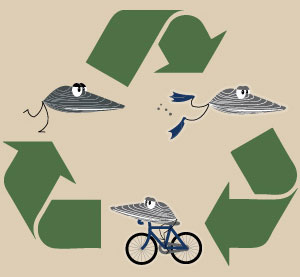
Governor McCall endeavored to clean up the Willamette, simultaneously removing a riverside highway and replacing it with Waterfront Park, where the triathlon takes place today. By 1972 his administration's efforts were so successful that National Geographic ran a cover story naming the previously battered Willamette one of "America's Wild and Scenic" rivers.
The river's subsequent fall from grace was rapid and nauseating. Additional pollutants and raw sewage disgorged by a growing city led to a river so befouled that the federal government declared the harbor area a Superfund site in the 90's.
That was what I was told when I began talking about holding a triathlon in Portland – you can't swim there, it's Superfund. But Superfund isn't downtown, and it wasn't the whole story. It turns out the river is recovering again, cared for by more-responsible city fathers and a handful of non-profit organizations, among them The Freshwater Trust. It turns out you can swim in the Willamette, safely, if you understand when and where. And each year the when becomes longer and the where becomes wider.
Extensive raceday recycling is nice. Composting certainly helps. And a finish line with native seedums growing out of the top catches the eye and stirs the imagination. But all of this is but a drop in the bucket compared to the life afforded by a healthy, clean, vibrant ribbon of blue coursing through an impassioned population.
To sustain the triathlon, to sustain the city, we have to sustain the river. We need to shift decades of entrenched disgust to a feeling of hope for the future. Our mission to create "liveability" thus became an effort to build a community that cares about the Willamette—and a community that understands its condition. We started weekly Thursday night swims, held downtown during rush hour and meant to get the public used to seeing people in the water. We printed t-shirts that proclaimed, "Yes, we are going to swim in the Willamette." I went on public radio to discuss and disarm. I wrote editorials for the paper and invited editors to see for themselves. We did not shy away from the river's sorrowful legacy – but we pointed out that it doesn't have to continue to be that way.
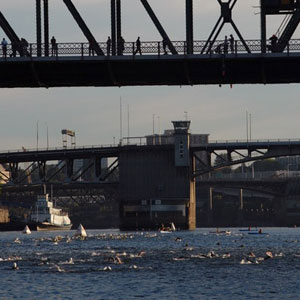
After the first year of the triathlon, we brought together all of the organizations dedicated to cleaning up the river and created RiverFest, a city-wide effort to educate and reconnect every citizen to the body of water that runs past their doorstep. Dragon boaters, kayakers, birdwatchers, triathletes, environmental activists, and artists came to the river for a shared purpose and renaissance. The river needed advocates as much as the advocates needed the river.
By the triathlon's third year around 600 people were competing and the primary question was no longer "Where do you swim?" We're not there yet, but slowly, slowly, like the drip from a leaky faucet, a body of public support for the river is swelling.
Sustainability happens when liveability is accompanied by collective responsibility. How do we produce a world in which we want to live – now – without sacrificing a world worth living in for our children? The problems before us are not so great that they can't be overcome with little steps and shared purpose. Through the triathlon, we tackle the small things – the organic fruit and the reusable goody bags – but we also seek to mind the pivot points around which all of life swings.
Series installments:
On Design
On Beauty
On Technology
On Disaster
On Liveability
On Stories
On Innovation
On People
On Community
On Fun


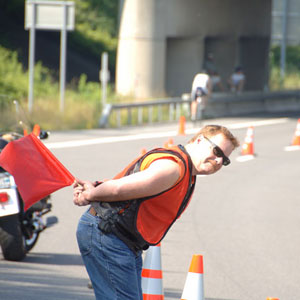
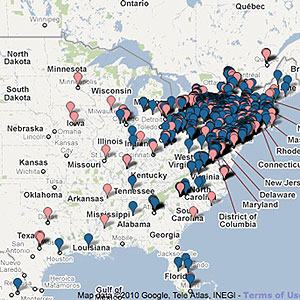
Start the discussion at slowtwitch.northend.network